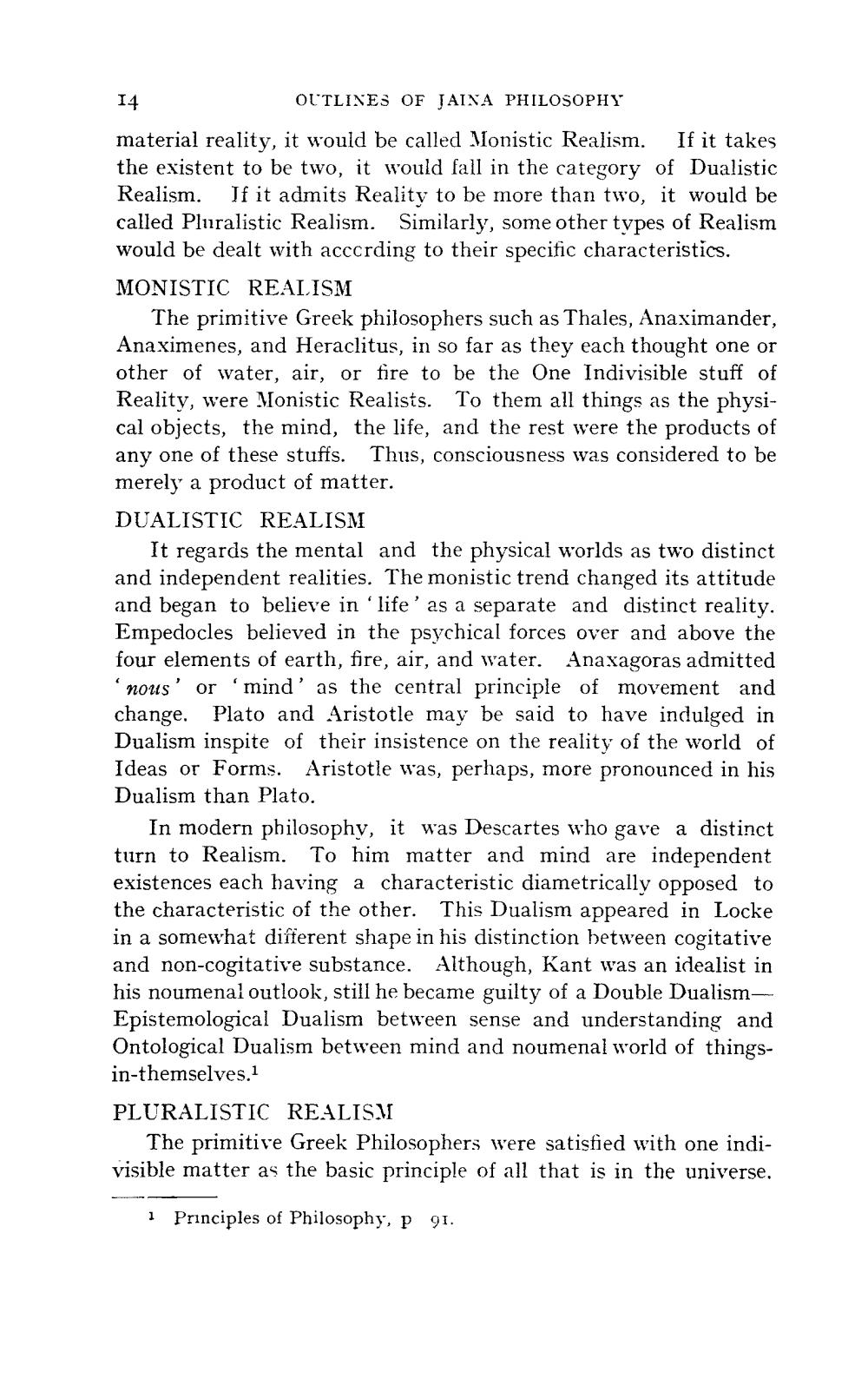________________
OUTLINES OF JAINA PHILOSOPHY
material reality, it would be called Monistic Realism. If it takes the existent to be two, it would fall in the category of Dualistic Realism. If it admits Reality to be more than two, it would be called Pluralistic Realism. Similarly, some other types of Realism would be dealt with acccrding to their specific characteristics.
14
MONISTIC REALISM
The primitive Greek philosophers such as Thales, Anaximander, Anaximenes, and Heraclitus, in so far as they each thought one or other of water, air, or fire to be the One Indivisible stuff of Reality, were Monistic Realists. To them all things as the physical objects, the mind, the life, and the rest were the products of any one of these stuffs. Thus, consciousness was considered to be merely a product of matter.
DUALISTIC REALISM
It regards the mental and the physical worlds as two distinct and independent realities. The monistic trend changed its attitude and began to believe in 'life' as a separate and distinct reality. Empedocles believed in the psychical forces over and above the four elements of earth, fire, air, and water. Anaxagoras admitted 'nous' or 'mind' as the central principle of movement and change. Plato and Aristotle may be said to have indulged in Dualism inspite of their insistence on the reality of the world of Ideas or Forms. Aristotle was, perhaps, more pronounced in his Dualism than Plato.
In modern philosophy, it was Descartes who gave a distinct turn to Realism. To him matter and mind are independent existences each having a characteristic diametrically opposed to the characteristic of the other. This Dualism appeared in Locke in a somewhat different shape in his distinction between cogitative and non-cogitative substance. Although, Kant was an idealist in his noumenal outlook, still he became guilty of a Double Dualism— Epistemological Dualism between sense and understanding and Ontological Dualism between mind and noumenal world of thingsin-themselves.1
PLURALISTIC REALISM
The primitive Greek Philosophers were satisfied with one indivisible matter as the basic principle of all that is in the universe.
1 Principles of Philosophy, p 91.




